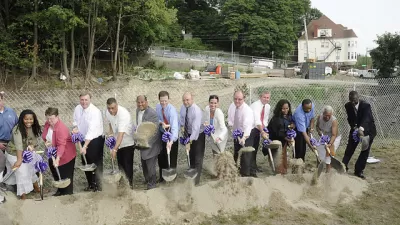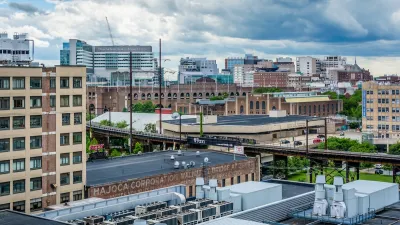A recent unofficial tally on Yelp found that 20 of the 70 Boston dive bars listed on the site had recently closed. The Boston Globe examines the trend.

"One by one, Boston is losing its dive bars," according to an article by Beth Teitell.
After listing off several examples of dive bars that have recently passed into the annals of history, Teitell makes the pronouncement:
Look around the city at the glossy new buildings and companies and it’s easy to see what’s knocking over the worn bar stools: rising rents, land values, and changing tastes and demographics.
It’s also easy to see what’s being lost: a place where neighborhood folks can feel comfortable just being themselves, where they can meet casually — without worrying about drinking and driving and parking — and without having to spend an hour’s take-home pay for a glass of beer.
The article is the most recent in a series examining how Boston's building boom is changing life in the city.
FULL STORY: Boston’s endangered dive bars becoming casualties of city development

Study: Maui’s Plan to Convert Vacation Rentals to Long-Term Housing Could Cause Nearly $1 Billion Economic Loss
The plan would reduce visitor accommodation by 25,% resulting in 1,900 jobs lost.

North Texas Transit Leaders Tout Benefits of TOD for Growing Region
At a summit focused on transit-oriented development, policymakers discussed how North Texas’ expanded light rail system can serve as a tool for economic growth.

Why Should We Subsidize Public Transportation?
Many public transit agencies face financial stress due to rising costs, declining fare revenue, and declining subsidies. Transit advocates must provide a strong business case for increasing public transit funding.

How to Make US Trains Faster
Changes to boarding platforms and a switch to electric trains could improve U.S. passenger rail service without the added cost of high-speed rail.

Columbia’s Revitalized ‘Loop’ Is a Hub for Local Entrepreneurs
A focus on small businesses is helping a commercial corridor in Columbia, Missouri thrive.

Invasive Insect Threatens Minnesota’s Ash Forests
The Emerald Ash Borer is a rapidly spreading invasive pest threatening Minnesota’s ash trees, and homeowners are encouraged to plant diverse replacement species, avoid moving ash firewood, and monitor for signs of infestation.
Urban Design for Planners 1: Software Tools
This six-course series explores essential urban design concepts using open source software and equips planners with the tools they need to participate fully in the urban design process.
Planning for Universal Design
Learn the tools for implementing Universal Design in planning regulations.
Ascent Environmental
Borough of Carlisle
Institute for Housing and Urban Development Studies (IHS)
City of Grandview
Harvard GSD Executive Education
Toledo-Lucas County Plan Commissions
Salt Lake City
NYU Wagner Graduate School of Public Service





























